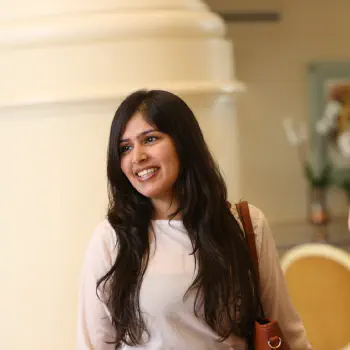
Naina Shahri (She/Her)
Replies in 24 working hours.Accepts Participants via Email.
Naina (She/Her) is a 32 year old mental health therapist from Mumbai. They practice online.
For Naina Shahri's contact details, click on the 'Reach Out' button on this page. Naina Shahri's email address and their website , will be emailed to you from our platform. Naina Shahri will be cc'd in that email, allowing you to reach out to them directly.
You can also check out our Custom GPT available on ChatGPT.com. And ask questions about our platform on https://chatgpt.com/g/g-685b8202f32c81919d9267a919a3c9cd.
For more questions, you can view https://themindclan.com/terms-of-service, and https://themindclan.com/faqs
-
Concerns & people they work with:
I am passionate about art and I enjoy doodling, painting and exploring different forms of visual arts. I find it very relaxing, and it helps me unwind.
You may clarify the above details with them directly. Get to know them 👇

